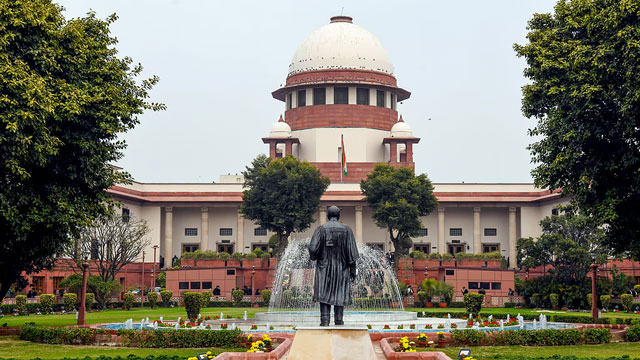Daijiworld Media Network – New Delhi
New Delhi, Oct 31: In a landmark ruling reinforcing the sanctity of the legal profession, the Supreme Court on Friday directed that investigating officers must not summon lawyers representing the accused, except under specific legal exceptions. The top court emphasised that such summons could violate the fundamental rights of the accused and infringe upon lawyer-client confidentiality.
The three-judge bench comprising Chief Justice B R Gavai and Justices K Vinod Chandran and N V Anjaria ruled that any summons issued to advocates must explicitly cite exceptions outlined under Section 132 of the Bharatiya Sakshya Adhiniyam (BSA), which protects confidential communications between lawyers and their clients.

The bench further clarified that under Section 94 of the Bharatiya Nagarika Suraksha Sanhita (BNSS), digital devices seized during investigations can only be produced before a jurisdictional court. Such devices, the court said, must be opened in the presence of the concerned party, their lawyer, and digital experts of their choice, ensuring transparency and fairness.
The verdict stemmed from suo motu proceedings initiated after the court took note of the Enforcement Directorate (ED) summoning senior advocates Arvind Datar and Pratap Venugopal for rendering legal opinions to clients during investigations. The ED later withdrew the summons following widespread criticism from the legal community.
Solicitor General Tushar Mehta, representing the ED, supported the court’s stance, stating that advocates are integral to the justice system and deserve protection in their professional role. “A lawyer should never be called by investigating agencies merely for providing professional advice,” Mehta said.
Senior advocate Vikas Singh, appearing for the Supreme Court Bar Association (SCBA), and advocate Vipin Nair, representing the Supreme Court Advocates-on-Record Association (SCAORA), welcomed the ruling. They warned that routine summoning of lawyers could have a chilling effect on the independence of the Bar and discourage legal counsel in sensitive cases.
The apex court, however, noted that the protection is not absolute. If a lawyer is found advising on evidence tampering or any act beyond professional conduct, such immunity would not apply. “We cannot create two classes of lawyers,” the bench remarked.
The ruling, hailed as a victory for judicial integrity and professional independence, aims to prevent the misuse of investigative powers while upholding the fundamental principles of justice.
Legal experts and bar associations across the country have lauded the Supreme Court’s decision, describing it as a “historic safeguard” for the autonomy of the legal profession and a reaffirmation of the constitutional right to fair legal representation.